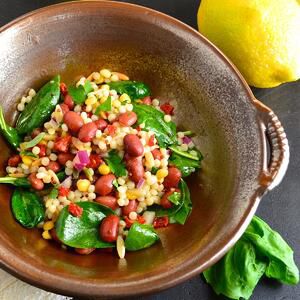Water Sustainability & Treatment For Food & Beverage Industry
Article
In the food and beverage industry, a high volume of purified water is essential for countless processes and water is connected to everything from sustainability goals to operational efficiency targets. Without a reliable stream of properly purified water, contaminants in ingredient water can affect the product consistency along with taste, odor and clarity and boiler or cooling water improperly purified can wreak havoc on the process. Due to the high volume of water used in the industry, food and beverage manufacturers are setting some of the most stringent sustainability goals to date in order to ensure proper water management. This involves addressing all potential water risks which can affect water reliability and creating a game plan to reduce water intake and increase water reuse efficiency. For today’s food and beverage water processors, having the tools necessary to use water efficiently is a top priority.

Water technologies, when appropriately chosen, not only make these sustainability goals more attainable but also help to improve cost savings and product quality. The right or wrong selection of water treatment equipment can mean excelling or failing in these critical areas. It can also have an impact on compliance with regulatory and safety guidelines.
The average food and beverage facility requires purified water for countless processes, but the most common are:
- Process Water
- Ingredient water production
- Boiler Feed
- Cooling Tower Feed
- Recycling and Reuse
- Wastewater Treatment
Many facilitates will require water technology to accomplish all of the above processes and there are countless water treatment options to choose from. So, what water treatment technologies are available today and which options are suited to which applications? View our Food & Beverage industry page to learn more.